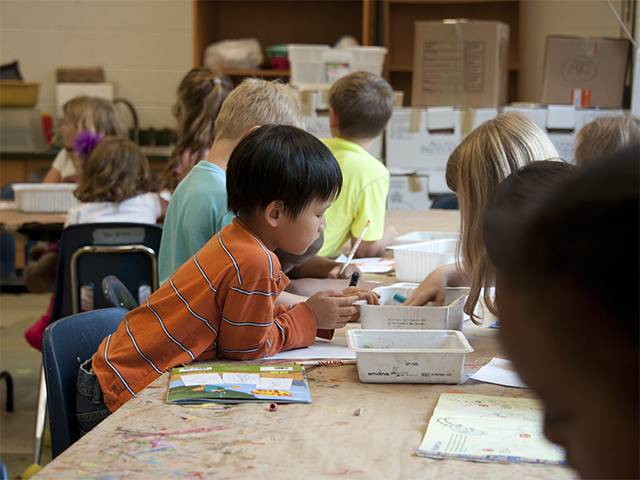Pre-Verbal Communication in Children

Pre-verbal communication skills are all the ways a child communicates with others without using words. Pre-verbal communication skills include things such as eye contact, gestures, joint attention and turn-taking. These skills start to emerge from the very moment a child is born, and they form the 'building blocks' of all future speech and language development.
Children learn pre-verbal skills by interacting with family members as well as by observing others in their environment. It is important to help children develop strong pre-verbal skills so that they can become confident communicators. Speech Pathologists at Care Speech Pathology recommend working on these pre-verbal skills with young children at home:
Eye contact – This allows children to have meaningful interactions with others by fully attending to another's face and facilitating a social connection. Eye contact from a young age teaches children to interpret facial expressions and to have positive thoughts about others. As a child matures, eye contact also helps them to focus on relevant people when they are in loud or busy environments. Encourage a child to use eye contact at home by allowing plenty of face-to-face time, getting down on the floor with them, using excited faces and playing games such as "peek-a-boo".
Imitation – This is when a child learns to do something new by copying what someone else is doing. Imitation usually begins with physical actions such as waving, clapping or banging toys, and progresses to spoken words over time. Encourage a child's imitation skills at home by modelling simple actions, sounds or facial expressions and praising the child when they do it too.
Turn-taking – This is an important interaction skill that begins much earlier than a child's first boardgame. Turn-taking can be as simple as pulling silly faces or saying 'ga-ga' back and forth with your child. By taking turns with another person, a child begins to learn the "I-go-you-go" rules of communication. Encourage a child's turn-taking skills at home with games such as drumming, peek-a-boo, clapping, funny faces, tickling and making nonsense noises.
Joint attention – Joint attention involves sharing focus on an object or person with someone else. This lets us know that we are referring to, thinking about, and talking about the same thing as the other person. For example, your child might look from you to their milk bottle, and back to you again. Encourage a child's joint attention skills at home by introducing simple objects into face-to-face time and holding up things your child is looking at so that you can look at them together.
Gestures – This includes actions such as pointing, showing, giving, nodding yes or no, or waving hi/bye. Children develop gestures before they develop words. Encourage a child's gesture development at home by modelling the same gestures over and over again and responding immediately if you notice your child trying to use one.
Vocalisations – Vocalisations are an early sign that your child is becoming aware of their mouth and its ability to make noises. Vocalisations are therefore the earliest stage of speech development. Encourage a child's vocalisations at home by responding to them whenever they vocalise. This will teach your child that vocalisations are a form of communication – i.e., 'when I vocalise, something happens!'
Play – While not strictly a pre-verbal communication skill, play is critical in helping children make sense of the world around them by exposing them to people, objects, actions and events in a safe environment. Through play, children also learn about cause and effect, sequencing, problem-solving and social interaction. Encourage a child's play development at home by allowing them to explore new objects and ideas, joining in their activities in an excited way and gently showing them new ways to play. Keep in mind that your child will learn far more from you than they will from their toys!
Remember, pre-verbal skills are the building blocks of communication, and it is never too early (or too late!) to encourage pre-verbal communication skills at home.
MORE



